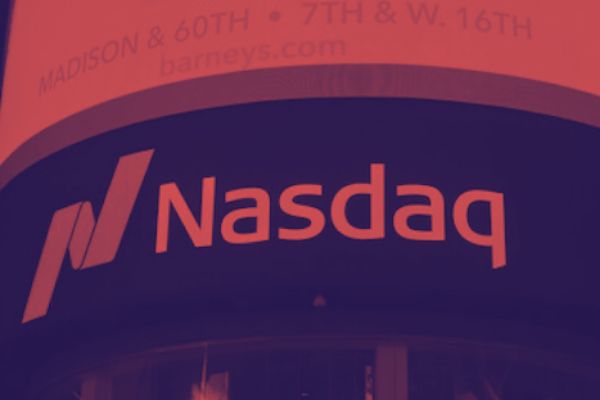R3 recently announced that it would be working with Nasdaq to facilitate the issuance of digital tokens by financial firms. The partnership is quite significant since Nasdaq is one of the leading exchanges in the traditional financial world.
The Details of the Partnership
The Nasdaq-R3 partnership will be a non-exclusive collaboration agreement. Through the partnership, the two firms will help financial firms issue digital tokens while also helping in the creation of digital marketplaces for tokenized assets.
R3 Partnerships with the Traditional Financial World
R3 is an enterprise blockchain company and it is behind the Corda enterprise blockchain platform. The company has been working with over 350 participants in various industries in the public and private sector to develop the Corda open-source blockchain and a commercial version of Corda called Corda Enterprise. The recent partnership with Nasdaq is not their first major deal in the financial world. R3 has been working with MasterCard to implement blockchain solutions in the multi-trillion cross-border payments sector.
Nasdaq and the Blockchain Sector
During a recent interview discussing the new partnership with R3, Johan Toll, the Head of Digital Assets Market Technology at Nasdaq, talked about Nasdaq’s involvement in the blockchain sector. He said that the exchange had been carrying out various projects and proofs-of-concepts since the mid-2010s using distributed ledger technologies. The projects they had been carrying out focused on pushing the industry forward while helping to safeguard a market that was highly regulated.
According to Toll, the Market Technology department at Nasdaq had been bringing their solution into the digital assets space. The aim is to enable highly scalable and low-latency trading while monitoring the market for potential abuse, which helps to strengthen the integrity of the digital assets market.
Via engagements with startup marketplaces and traditional exchanges, the solutions developed by Nasdaq have shown huge potential for tokenized assets and the use of the blockchain. For one, the solutions enable open access, which facilitates price discovery in new asset classes, which enable capital formation while also allowing expansion into upcoming product categories and client segments. Besides that, Toll believes that these solutions could reduce the need for manual interventions and data reconciliation between different systems.
The Progress of Institutionalized Digital Assets
When discussing the institutionalization of digital assets during the interview, John Tool said that five essential aspects needed to be ironed out for the full institutionalization of digital assets. These are:
- The technology needs to be mature
- Identifying business cases where real problems could be solved
- There needed to be proper funding for projects
- Regulators had to be onboard
- Participants in the market needed to be ready for the change
Johan Toll noted that the technology had already matured since there were numerous digital assets projects that were in the prototype stage. Besides that, he noted that most participants in the institutional space acknowledged the technology was mature enough and they were ready to be part of the transformation. He also noted that discussions had moved from innovation centers to business owners who were looking to implement modern technologies such as machine learning and the blockchain and they had the financial resources to implement these solutions.
Johan Toll also noted that several use cases were coming up in the market. The first to use these solutions were financial firms and exchanges, which were seeking to automate their processes. Use cases for the creation of new marketplaces in the insurance, healthcare, and logistics sector were being implemented. By tokenizing assets, it had become possible to track them through the entire life cycle.
Finally, Toll noted that various regulators in Asia, the US, and Europe now had a clear understanding of the nascent sector and they were better equipped to support the changes needed. Besides that, Toll noted that several firms in various countries were working with regulators as they implement blockchain technology and launch innovative services and products.
While no specifics of the deal were issued, John Toll noted that they were already working on several prototypes. According to him, the reason they chose R3 was that Corda Enterprise was designed from the ground up with highly regulated financial environments in mind, which was perfect for Nasdaq.
Image Source: Shutterstock
Notice: Information contained herein is not and should not be construed as an offer, solicitation, or recommendation to buy or sell securities. The information has been obtained from sources we believe to be reliable; however no guarantee is made or implied with respect to its accuracy, timeliness, or completeness. Authors may own the crypto currency they discuss. The information and content are subject to change without notice. Visionary Financial and its affiliates do not provide investment, tax, legal or accounting advice. This material has been prepared for informational purposes only and is the opinion of the author, and is not intended to provide, and should not be relied on for, investment, tax, legal, accounting advice. You should consult your own investment, tax, legal and accounting advisors before engaging in any transaction. All content published by Visionary Financial is not an endorsement whatsoever. Visionary Financial was not compensated to submit this article Please also visit our Privacy policy; disclaimer; and terms and conditions page for further information.

